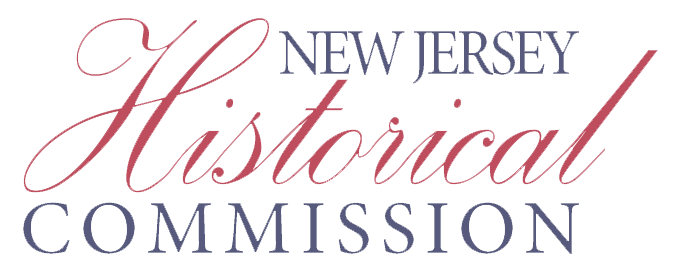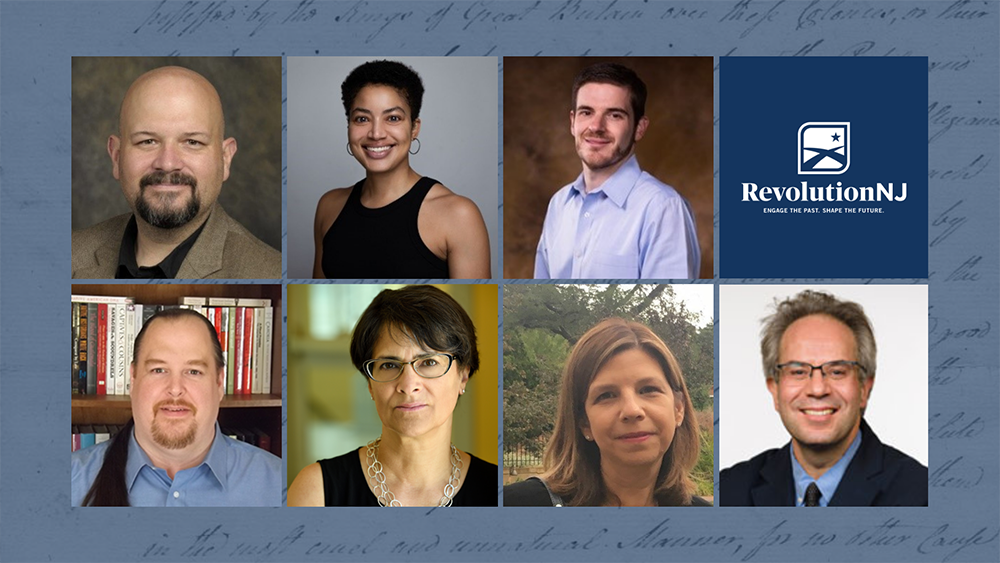

New learning opportunities are now available to help those interested in preparing for the 250th anniversary of the United States in 2026. These virtual units invite viewers to engage with the Revolution NJ’s key interpretative themes and guiding questions, learning from prominent scholars and leaders in the fields of history and the social sciences along the way. To learn more about Revolution NJ, see History Resources.
Join us summer 2022 for a series of free public history workshops exploring best practices for accessible, inclusive, and community-centered work at museums, historic sites, and humanities organizations.
Captivating Stories and Experiences
Monday, August 1, 2022, from 9 a.m. to 3 p.m. (ET)
Liberty Hall Museum, 1003 Morris Ave, Union, NJ
How do you leave an indelible mark on visitors to your site? In what ways can you create memorable experiences that increase visitor interaction with the stories you tell? How can you become part of the fabric of your communities? Have no fear, we are here! Join us for the third and final program in our Revolution NJ Public History Workshop Series: Captivating Stories and Experiences featuring Gretchen Sorin, Director, Cooperstown Graduate Program, and Meredith Sorin-Horsford, Executive Director, Dyckman Farmhouse Museum.
This free event will be in-person with registration capped at 40 people. Lunch and refreshments will be provided. Register today for Captivating Stories and Experiences.
Uncovering Voices, the second workshop in the series, was held on July 13, 2022 at Tuckerton Seaport and Baymen’s Museum. Speakers Sydney Johnson (Rutgers University-Newark), Lilia Fernandez (University of Illinois at Chicago), and Christopher Matthews (Montclair State University) explored the methods and best practices for community-centered research projects at historic sites and cultural organizations. Recordings and resources coming soon.
Engaging Communities, the first workshop in the series, was held on June 15, 2022 at Historical Society of Princeton. Workshop facilitator Sarah Pharaon (Dialogic Consulting) led participants in a full day of activities and discussion focused on engaging communities at public history and cultural sites. Recordings and resources coming soon.
Revolution NJ is excited to offer new teaching resources for Grade 8-12 teachers, history organizations, and social studies providers. Resources were created to aid teaching about the 250th anniversary of the United States in 2026.
Lesson Plans:
Teaching resources are also available below to accompany each of the webinars in the A Bundle of Silences video series
View a recording of the Educator's Info Session held on March 30, 2022 to learn more about how these resources can be utilized alongside the Revolution NJ professional development series.
Big Ideas: Concepts for the 250th programs were held monthly from January to May 2022 larger conversations from academia and cultural organizations to the general public. This series of live virtual panel sessions featured two scholars engaging with a moderator about current topics, terms, and debates that are foundational to the way we understand the broader human experience here in the United States and around the world.
View a recording of the fifth and final panel in the Big Ideas series, held on May 25, 2022. "How and Why Should We Engage the Public?" explores public history approaches to community engagement, participatory museum work, and place-making. Our featured speakers were: Ms. Meredith Horsford, Executive Director, Dyckman Farmhouse Museum; President, Greater Hudson Heritage Network; Ms. Michelle Moon, Principal, Saltworks Interpretive Services; and Varissa McMickens Blair, Founder & Executive Consultant, NOWWellspring Consulting (Moderator).
View a recording of the fourth panel in the Big Ideas series, held on April 22, 2022. We are also pleased to share a list of resources shared by program speakers.
The panel provided an overview of how historical research is done and the ways in which our knowledge about the world is constructed, limited, and understood. Speakers included: Dr. Britt Rusert, Associate Professor and Director of Undergraduate Studies in the W. E. B. Du Bois Department of Afro-American Studies at the University of Massachusetts Amherst and Ms. Joy Bivins, Director of the Schomburg Center for Research in Black Culture at the New York Public Library. The conversation was moderated by Dr. Kristin O'Brassill-Kulfan, Assistant Teaching Professor and Coordinator of Public History at Rutgers University-New Brunswick.
View a recording of the third panel is the Big Ideas series, held on March 23. The panel provided a broad overview of the social science and humanities approach to systemic and structural thinking. Our featured speakers were: Dr. Tara J. Yosso, Professor, Graduate School of Education, University of California, Riverside; Dr. Johnathan Rosa, Associate Professor, Graduate School of Education, Stanford University; and Kristyn Scorsone, PhD Candidate, Department of American Studies, Rutgers University-Newark & Volunteer Manager, Queer Newark Oral History Project (Moderator).
View a recording of the second panel in the Big Ideas series, held on February 25. The program provided a broad overview of the social science and humanities approach to the concept of identity. Speakers included: Prof. Rachel Watkins, Associate Professor of Anthropology at American University, and Dr. Svati Shah, Associate Professor of Women, Gender and Sexuality Studies at the University of Massachusetts Amherst. The conversation will be moderated by Dr. Jesse Bayker, Research Project Manager and Digital Archivist at the Institute for the Study of Global Racial Justice at Rutgers University-New Brunswick.
View a recording of the first panel is the Big Ideas series, held on January 24. The program provided an overview of the American Revolution and current approaches to studying it. Speakers included Dr. Lucia McMahon, Professor and Chair of History, William Paterson University, and Dr. LaGarret King, Associate Professor of Black History and Social Studies Education and the Director of the Center for K-12 Black History and Racial Literacy Education, University at Buffalo. The conversation was moderated by Todd Braisted, Author, Journal of the American Revolution.

A Bundle of Silences: Reimagining Interpretive Approaches to the Past is a series of seven pre-recorded webinars that pull together scholars from across the nation to explore key aspects of the American Revolution, as identified in Revolution NJ's Interpretive Framework. In these seven 30-minute videos, viewers will be introduced to the broader context and discussions surrounding each of the themes. In addition to this introductory overview, each webinar will have several case studies that demonstrate how using a particular theme can help develop a nuanced interpretation of the past.
Read our overview document for full webinar descriptions, scholar biographies, FAQ’s, resources, and credits. You can view the full series below or via playlist on the NJ Historical Commission’s YouTube page.
How do we know what we know? A simple question with a complicated answer. In the webinar Historical Process, Dr. Gonzalez-Tennant explores the way historians, archaeologists, and archivists make sense of the past and how the fragmentary nature of evidence shapes the stories they are able to tell.
Historical Process FAQ and Additional Reading
Historical Process Webinar Transcript
Historical Process Educational Resources
In Property and Sovereignty: Native Americans and the United States, Dr. Jimmy Sweet explores the how the concepts of property and Native American sovereignty were grappled with in the formation of the United States and New Jersey more locally.
Property and Sovereignty: Native Americans and the United States FAQ and Additional Reading
Property and Sovereignty: Native Americans and the United States Webinar Transcript
Property and Sovereignty: Native Americans and the United States Image Credits
Property and Sovereignty Educational Resources
What is a democracy? How are the ideas of life, liberty, and pursuit of happiness defined and for who? In The Fundamental Ideas and Values of the American Revolution, Dr. Shankman provides an overview of the “American Political Experiment”, exploring how the notion of democracy was wrestled with during the founding of the United States.
Fundamental Ideas and Values of the American Revolution FAQ and Additional Reading
Fundamental Ideas and Values of the American Revolution Image Credits
Fundamental Ideals and Values Educational Resources
In Political Participation and the Battlegrounds of the American Revolution, Dr. James Gigantino explores the key theme of New Jersey as a “Battleground” by diving into the various considerations and decisions facing people at the outset of the American Revolution.
Political Participation and the Battlegrounds of the American Revolution FAQ and Additional Reading
Political Participation and the Battlegrounds of the American Revolution Webinar Transcript
Political Participation and the Battlegrounds of the American Revolution Image Credits
Political Participation Educational Resources
Who was excluded and included in our nation’s history? In what way? How did this shape the way people experienced day to day life? In Exclusion and Inclusion, Dr. Roberts explores how the American experience was defined by processes of exclusion and inclusion.
Exclusion and Inclusion FAQ and Additional Reading
Exclusion and Inclusion Webinar Transcript
Exclusion and Inclusion Image Credits
Exclusion and Inclusion Educational Resources
Who gets to partake in the political process of the United States and to what extent? How has the institution of voting been differentially applied and experienced? Who is considered a citizen and by extension what rights do they have? In The Puzzle of Citizenship: Black Americans and the Birthright Principle, viewers will join Dr. Martha Jones in exploring how the complicated question of personhood and political participation are engaged with throughout the history of the United States.
The Puzzle of Citizenship: Black Americans and the Birthright Principle FAQ and Additional Reading
The Puzzle of Citizenship: Black Americans and the Birthright Principle Webinar Transcript
The Puzzle of Black Citizenship Educational Resources
New Jersey is one of the most diverse and densely populated states in our nation, but how did it get there? In the Movement of People webinar, Dr. Lopez explores the migration of people in and out of the state throughout its history.
Movement of People FAQ and Additional Reading
Movement of People Webinar Transcript
Movement of People Image Credits
Movement of People Educational Resources